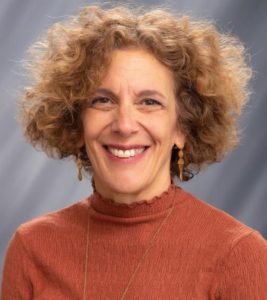Tagged: “Why Forgive?”
Dr. Robert Enright and IFI colleagues featured in recent edition of APA Journal

Image by Pixabay, Pexels.com
Robert Enright was the special issue editor for the first issue of 2025 in the American Psychological Association’s Journal of Theoretical and Philosophical Psychology. His colleagues and he published the centerpiece article on what they call the “definitional drift” in how researchers understand the moral construct of forgiveness. There are at least eight different definitions of forgiveness in the published literature, most of which are philosophically incorrect. The central article was followed by commentaries from three philosophers and three psychologists and a final comment by Robert Enright, Jichan Kim, and Jacqueline Song. The centerpiece and final article of the special issue are these:
Song, J., Enright, R.D., & Kim, J. (2025). Definitional drift within the science of forgiveness: The dangers of avoiding philosophical analyses. Journal of Theoretical and Philosophical Psychology, 45(1), 3-24. Note: This is the centerpiece article for a special issue on the definition of forgiveness within psychology. doi: https://doi.org/10.1037/teo0000278
Enright, R.D., Kim, J., & Song, J. (2025). Our hope that definitional drift in forgiveness will cease from drifting: Our comments on the six commentaries. Journal of Theoretical and Philosophical Psychology, 45(1), 65-71. doi: https://doi.org/10.1037/teo0000306
Dr. Enright Gives Keynote Address at Restorative Justice Conference

Dr. Robert Enright
Dr. Robert Enright gave the keynote address at the national restorative justice conference, Embracing the Circle Conference, at Stranmillis University College, Belfast, Northern Ireland, on February 5, 2025. The address was entitled Developing teachers and students as transmitters of forgiveness. One of his main points is that restorative justice primarily is centered on dialogue. Yet, if students or adults are dialoguing with resentment in the heart, then the conversation likely will be less effective than when people have forgiving and, therefore, compassionate hearts. In other words, people can be civil when they are face-to-face at a peace table, but if there is deep anger in the heart, this can fester once those who are dialoguing leave the table. He encouraged those who emphasize restorative justice to consider changing hearts prior to meeting for dialogue. That conversation might bear more fruit between and among people.
The Role of Emotional Validation in Apologies and Forgiveness
This blog post is by Dr. Suzanne Freedman, a Contributing Writer and Researcher to the IFI. She is a Professor in the Educational Psychology department at the University of Northern Iowa in Cedar Falls, Iowa.
 I did something to hurt my daughter the other day. It was unintentional, but she was angry and hurt, and she had a right to her feelings. When she shared her emotions with me, I realized that my actions were wrong. I felt bad about what I had done; I apologized and assured her that it would not happen again. However, I apologized immediately after she expressed her anger, while she was still upset. Fortunately, through my study of forgiveness and the psychological process of forgiving for over 30 years, I understand that forgiveness is not instantaneous.
I did something to hurt my daughter the other day. It was unintentional, but she was angry and hurt, and she had a right to her feelings. When she shared her emotions with me, I realized that my actions were wrong. I felt bad about what I had done; I apologized and assured her that it would not happen again. However, I apologized immediately after she expressed her anger, while she was still upset. Fortunately, through my study of forgiveness and the psychological process of forgiving for over 30 years, I understand that forgiveness is not instantaneous.
Although I wanted my daughter’s forgiveness, I knew expecting it right away was neither fair nor realistic. People often apologize and expect immediate absolution before the injured has processed their emotions. Many individuals who say, “I forgive you” upon receiving an apology later discover they do not feel that forgiveness in their hearts. This is because genuine healing requires time, not just words.
One of the most overlooked aspects of apologizing is allowing the hurt people time to work through their emotions. Expecting immediate forgiveness disregards the necessary emotional processing that follows a deep, personal, and unfair injury (Smedes, 1996). Emotional reactions to conflict and personal injury are normal and natural, and those who have been hurt need time to feel and express their emotions. As a student in my college class on interpersonal relationships stated, “Forgiveness is not immediate—you cannot just say ‘I forgive you’ and expect everything to be better. Especially if saying it is not true—saying it just to stop talking about it does not make it better for you or them. Yet, I see it all the time, and people wonder why their relationships/friendships are never the same. There are steps you can take to forgive someone, even if you never forget what happened or your relationship isn’t the same” (personal communication, March 2025).
A sincere apology involves emotional validation—the acknowledgment of another person’s feelings as real and important. Research shows that interpersonal hurt often evokes a mix of emotions, including resentment, anger, and/or sadness (Freedman & Zarifikar, 2016). If these emotions are dismissed—such as when an offender urges the injured to “move on” or “let it go”—it can lead to emotional suppression or denial rather than genuine healing (Gregory, 2025). Admitting and expressing feelings is a critical step before forgiveness can occur, as emphasized in the first phase of Enright’s (2019) process model of interpersonal forgiveness. Forgiveness is often criticized because individuals fail to recognize this critical step in the forgiveness process and mistakenly believe that forgiveness involves the suppression or denial of one’s emotions (Freedman & Zarifkar, 2016).
I knew that allowing my daughter to feel, express, and process her emotions was just as important as my apology. By validating her anger rather than dismissing it or pushing her toward forgiveness, I communicated that her pain mattered. This act of validation fosters an environment where forgiveness can develop naturally over time. Parents often struggle when they see their children in pain and may react by suggesting they quickly move past the hurt. However, individuals need time to experience and process their emotions before they are ready to move forward. According to Damour (2020), when teens can sit with their feelings and then move beyond them, they develop resilience, realizing they can endure difficult emotions.
Pressuring someone to forgive before they are ready can lead to resentment, emotional dissonance, and distrust in the forgiveness process (Worthington, 2006). Instead of fostering healing, forced forgiveness creates obligation, often resulting in superficial reconciliation (Freedman & Chang, 2010). My college students frequently report that they remember being told in childhood to forgive after receiving a forced apology, despite still feeling hurt. Similarly, offenders are often encouraged to apologize before they truly feel remorse. Genuine forgiveness and apology cannot be demanded—it must arise from within.
In my situation, if I had expected my daughter to forgive me immediately, she might have felt pressured rather than supported. This could have led to resentment or suppression of her emotions instead of real healing. By giving her the space she needed, I conveyed that her emotions were valid. As Damour (2020) explains, psychological health is not about avoiding discomfort but about experiencing the appropriate emotion at the right time and developing the capacity to endure it.
Conclusion
Forgiveness is a process, not a transaction. While an apology is a critical step in making amends, it does not guarantee immediate and automatic forgiveness. Emotional validation plays an essential role in healing by acknowledging the injured person’s emotions rather than rushing the person toward a resolution. Additionally, while an apology is not necessary for forgiveness to occur, it is often important for reconciliation and can make forgiving easier. However, requiring an apology before forgiving can leave the injured trapped in resentment, waiting for an apology that may never come (Freedman, 1998).
My experience with my daughter reinforced a fundamental truth—forgiveness cannot be rushed or forced. Healing requires time, understanding, and the space to process emotions fully. By allowing my daughter to work through her pain without pressure, I honored her emotional experience and our relationship, fostering the conditions for true forgiveness to emerge.
References
Damour, L. (2020) Helping teens make room for uncomfortable emotions. New York Times, April 21, https://www.nytimes.com/2020/04/21/well/family/coronavirus-teenagers-uncomfortable-emotions.html
Enright, R. D. (2019). Forgiveness is a choice: A step-by-step process for resolving anger and restoring hope. American Psychological Association.
Freedman, S. (1998). Forgiveness and reconciliation: The importance of understanding how they differ. Counseling and Values, 42(3), 200–216. https://doi.org/10.1002/j.2161-007X.1998.tb00426.x
Freedman, S., & Chang, W.-C. R. (2010). An analysis of a sample of the general population’s understanding of forgiveness: Implications for mental health counselors. Journal of Mental Health Counseling, 32(1), 5-34. https://doi.org/10.17744/mehc.32.1.a0x246r8l6025053
Freedman, S., & Zarifikar, T. (2016). The psychology of interpersonal forgiveness and guidelines for forgiveness therapy: What therapists need to know to help their clients forgive. Spirituality in Clinical Practice, 3(1), 45-58. https://doi.org/10.1037/scp0000087
Gregory, A. A. (2025). You don’t need to forgive: Trauma recovery on your own terms. Broadleaf Books.
Smedes, L. B. (1996). The art of forgiving: When you need to forgive and don’t know how. Penguin Random House.
Worthington, E. L., Jr. (2006). Forgiveness and reconciliation: Theory and application. Routledge/Taylor & Francis Group.
Husband says he begged God to forgive his wife after she killed her four children and herself

Image by Raphael Brasileiro, Pexels.com
On February 19 of this year, Gina Vivinetto on the website Today (https://www.today.com/parents/tranyelle-harshman-murder-suicide-kids-rcna192839) reported on a tragic murder and suicide by a woman and her four children. The woman was suffering from both postpartum depression and post-traumatic stress disorder (PTSD). The husband, Cliff Harshman, in an act of heroism, reported that he “begged God to forgive her” as Tranyelle was lying on her hospital bed. He said that he does not view her “as a monster” because she was both a loving wife and mother. He reflected on his wife’s struggles over the past five years, concluding that she was very troubled and was unable to overcome the psychological challenges.
Can Murderers Be Forgiven?

Image by Ron Lach, Pexels.com
I recently watched a podcast video in which a prominent world figure, currently involved in inter-country conflict, was asked about the possibility of forgiving the other nation’s leader. The world leader then asked this rhetorical question in response to the host: “Can murderers be forgiven?” It was obvious by his anger that the world leader was saying, “No.” He did not elaborate, which was the end of that particular part of the discussion.
It was apparent that the host saw the possibility of forgiveness between the two leaders as one path to peace. Yet, if the leader sees the other as a murderer, then it follows that he is shutting the door on this possibility.
The question by the host was a serious one that might open the door, even a little, to peace. Can murderers be forgiven? If we look at the history of forgiveness, we see that the answer is a definite “yes” because those who are “murderers” can be and have been forgiven by others in the past. Here are two examples:
Marietta Jaeger lost her daughter Suzy to a kidnapping and murder when her family was on vacation (https://www.youtube.com/watch?v=8OFMx9kIems). At first, she said that she was so angry that she could have killed him and with a big smile on her face. Yet, as the weeks dragged on, she saw the stress and anger tearing her family apart. It was then that she decided to forgive the murderer, even though she had no idea who this was. She wished the person well and prayed for the person’s well-being. When the murderer called Marietta on the first anniversary of his kidnapping Suzy, Marietta expressed concern for him. Her kindness so took him aback that he stayed on the phone for over an hour, sufficient time for the law enforcement officials to trace the call, find, and arrest him.
The second example is by Eva Mozes Kor, who forgave “Dr.” Mengele for his abhorrent medical experiments on the twins of Auschwitz during World War II (https://www.youtube.com/watch?v=gdgPAetNY5U). Because of such unethical practices by Mengele, Eva’s twin sister, Miriam, passed away prematurely from kidney failure. Despite some of Eva’s colleagues disapproving of her decision, she forgave Mengele and the Nazis “in my name only” as a way to be free of the resentment that could have been with her for the rest of her life.
In neither case did Marietta nor Eva abandon the quest for justice. Forgiveness and justice existed side-by-side. By this I mean that Marietta certainly would not want the one who murdered Suzy to be on the streets to take the lives of others. Eva was forgiving once she was free from concentration camp and the Nazis were utterly defeated.
Can murderers be forgiven? Yes, and they have. If the leader, who used this question as a rhetorical retort to the podcast host, is open to justice and forgiveness together in the future, as Marietta and Eva have shown is possible, might his fellow citizens and he be able to take a first step of peace in his region of the world? This is no rhetorical question, but one that might in the future save lives. I say this because negotiations with hatred in the heart are less likely to lead to satisfying and stable outcomes than when the heart is at peace and offers that peace to the other.
![]()



